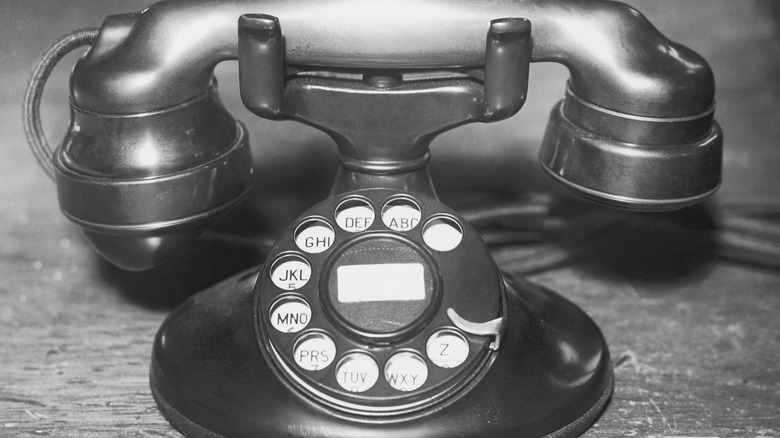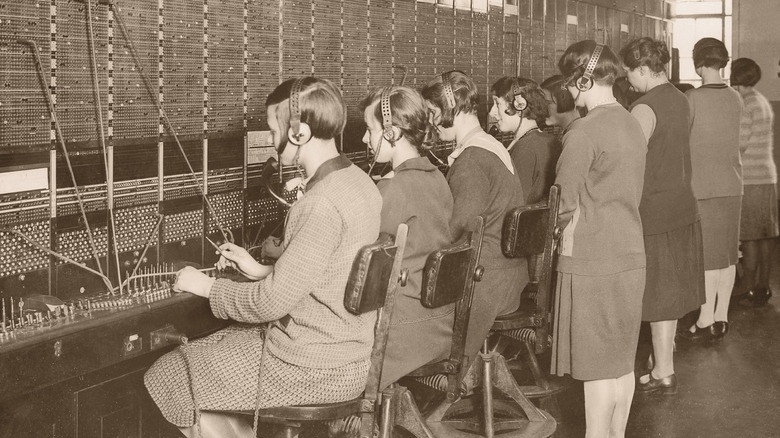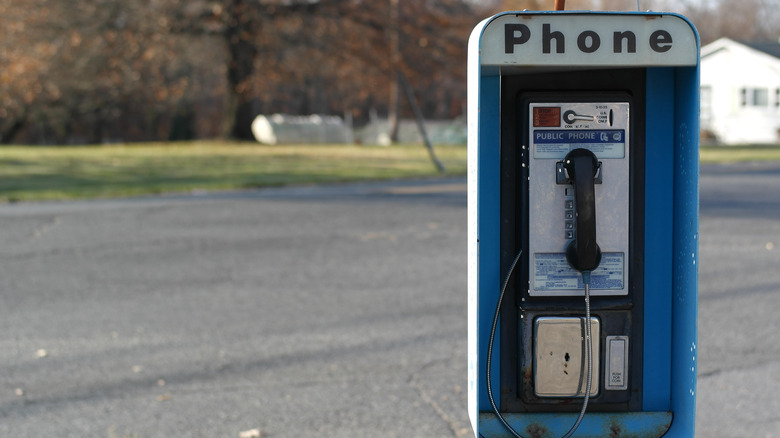Can You Still Call For The Time?
At this point there isn't a person alive who can't find the time in about three seconds flat. Just whip out your phone, glance at your watch, scan the room for a clock — you name it. Whether racing out the door, checking the time on the way to work, scanning your schedule for appointments, coordinating with friends on the weekend, looking at calendars to plan events, etc., we're all drowning in time and our collective obsession with determining it, counting it, dividing it, and so forth. But those born within the past few decades might not realize there was a time — so to speak — when you could actually pick up the phone and call a number to find out the exact time of day. Weird, huh?
But what would be the sense of using a phone to check for the time, anyway? As The Atlantic says, it was intended for use in national emergencies or during power outages. In an era of rotary phones and black-and-white films there were only a handful of satellites in existence. Even by the end of the 1980s, there were only 416 satellites worldwide. Clocks didn't automatically sync to floating computers in orbit, and when daylight saving time rolled around plenty of folks got confused about the time. What better way than using a landline to check in with some central national resource so everyone could sync up? And for those still in need, the United States Naval Observatory still offers the service.
Keeping an eye on the time
Believe it or not, it's more of a new thing to not call a number for the time. Calling a number for the time dates back to 19th-century telegraph days when railroad companies had to coordinate with stations. In fact, the railroad industry changed life all the way to the present — it's because of them that time zones were invented in 1883. Railroads shrank the size of the world by making transportation much faster, and necessitated the need — along with factories and the Industrial Revolution at large — for keeping a much closer eye on time. Goods needed to be produced, shipped, and arrive in a highly predictable, accurate, and arranged manner.
By 1906, as The Atlantic cites from a Hungtington Herald report that year, Western Union installed a cutting-edge clock "corrected each day at noon by electric adjustment" for the express purpose of providing telephone operators with an up-to-date answer to phone queries about the time. The first automated system debuted in 1933, and by 1958 New York's local time-delivery system received 90,000 calls a day. Voices like that of Jane Barbe told the time down to the second, and also the temperature in Fahrenheit and Celsius, as we can hear on YouTube. Judging by the reaction Barbe got in 1989 when speaking with TV host Dick Clark on his show "Friday Night Surprise," plenty of people fondly remember hearing her voice on the phone.
In search of lost time
So in an era of ubiquitous smartphones and incessant digital interconnectedness, people can't possibly use a call-for-the-time phone service too often, right? Well, let's just say that it's a good thing that the Naval Observatory kept its time-telling phone number, because in 2015 a stunning 3 million people dialed that number, per the AARP. Demetrios Matsakis, who works at the observatory, said that the volume of calls changes along with the time of week and year. More people call during the week, not the weekend, and practically no one calls on holidays, especially Christmas. In other words, people care less about time when they have time off. Come daylight saving time people call the most. Nostalgia hunters and the curious can give the Navy's number a ring if they'd like. It's 202-762-1401. Go ahead. It's totally okay — really.
As The Atlantic says, the current time-telling voice belongs to Fred Covington, a man with a number of TV credits to his name. He might be the last of his kind, though, as companies like Verizon discontinued their time-telling service in 2011. And yet, Matsakis from the Naval Observatory says that calls have gone up since 2009, a couple years after the first iPhone hit the market. It would be interesting to have data on who's calling the time-telling number — age, location, etc. — but we'll never know. So for now, if you ever lose track of the time, all you need is a phone.


